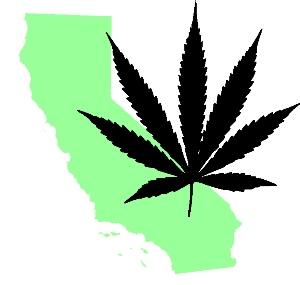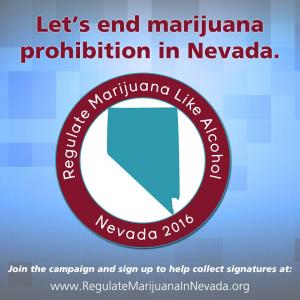This article was produced in collaboration with AlterNet and first appeared here.
A month out from Election Day, it’s looking like marijuana legalization is going to be a big winner. Initiatives are on the ballot in five states, including California, and all indications are that they are going to pass in all of them, with one possible exception.

In what is the closest thing ever to a national referendum on weed, states on the West Coast, in the Southwest, and in New England with a total of more than 55 million residents will be rendering their verdict. That’s about one-sixth of the national population.The four states that have already legalized marijuana — Alaska, Colorado, Oregon, and Washington — have about 17 ½ million residents. Even if California were the only state to see a victorious legalization initiative — and it very likely won’t be — victory there would triple the number of people living in pot-legal states. A clean sweep would quadruple it.
Nationally, attitudes toward marijuana have undergone a sea change in recent years. Gallup’s annual polls show that only a decade ago, support for legalization was at a mere 36%. But by 2012, when Colorado and Washington voted to legalize it, nationwide support had climbed to 50%, and by 2014, when Alaska and Oregon (and Washington, DC) followed suit, it was at 58%. It blipped down last year in the Gallup poll, but this year, it’s back to 58% again.
The national polls are encouraging, but just as in the presidential race, they don’t really matter when it comes to the nitty-gritty of winning state-level elections. What does matter are the state level polls, and at this point, they’re looking pretty damned good for legal weed.
And a good November for marijuana legalization could be the turning point on the path toward ending federal marijuana prohibition. Championing an end to federal pot prohibition has been a lonely stance so far — thanks, Bernie Sanders! — but with more states, and especially California, set to go legal next month, the next Congress is going to have a considerable contingent of members whose constituents have already embraced legalization.
Now, the votes haven’t been cast yet, there are opposition campaigns of varying strength in the different states, and there are untoward surprises that could happen — say, a teenager on pot runs over a bunch of school kids — but as we enter the final weeks of the campaign season, it’s increasingly looking like weed is going to win big.
Here’s the state-by-state rundown:
Arizona
This is the tightest race, with the Prop 205 legalization initiative leading by 10 points, but only hitting 50% in an August Arizona Republic/Morrison/Cronkite News poll. Other recent polls have showed the initiative narrowly losing. Voters in this red state approved medical marijuana in 2010, but only by the narrowest of margins. If legalization can pass in Arizona this year, that will be a real sign that support for prohibition is crumbling.
Still, the initiative faces a vigorous and well-funded opposition campaign led by state officials, and it has more money in the bank right now than the pro-legalization forces. The Prop 205 campaign has raised more money than the opposition ($3.2 million versus $2 million), but the opposition still has $1.4 million to do damage, while the legalizers only have $170,000 in cash on hand.
California
The Big Enchilada is ready to pop out of the oven. California tried to be first out of the gate with 2010’s Prop 19, but it came up just a few points short. This time will be different. Polls this year have consistently shown support for the Prop 64 legalization initiative at over 50% and mostly in the upper fifties. The latest poll, a September survey from the Public Policy Institute of California, had support at 60%. An August poll that did not ask specifically about Prop 64 but asked whether respondents believed “marijuana should be legal for adults to purchase and use recreationally” garnered 64% support.
Support for legalization has gone mainstream in California, with the initiative campaign fronted by Lt. Gov. Gavin Newsom (D), endorsed by the state Democratic Party (among many others), several sitting US representatives, and leading newspapers in the state, including the Los Angeles Times and the San Francisco Chronicle.
And the initiative campaign has big, big bucks. Yes on 64 has raised more than $20 million, including more than $7 million from tech billionaire and philanthropist Sean Parker and has a war chest of more than $14 million. The campaign has committed nearly $7 million to campaign TV ads that began airing last week, and that leaves a big, fat bankroll for any last minute expenditures. The opposition, on the other hand, has raised only a fraction as much money, mainly from law enforcement groups and conservative philanthropists.
The Golden State is going green next month.
Maine
New England aims to become the first region outside the West to embrace legal weed, and it’s looking like Maine’s Question 1 legalization initiative will help lead the charge. A March poll had support at 54%, while a Portland Press Herald poll two weeks ago had it at 53%. Only 38% were opposed, and the number of undecideds is smaller than the gap between “yes” and “no” votes.
There is virtually no organized opposition, nor any sign of opposition fundraising. And the Question 1 campaign had $1.7 million in the bank last month. That’s plenty of money for last-minute ad buys in a small-market state.
Massachusetts
The Bay State is the second New England state poised to go green this year, with the Question 4 legalization initiative polling at 53% in a new WBZ-TV/ UMass Amherst poll. Only 40% were opposed. Voting for marijuana reform is nothing new for Massachusetts residents: A series of non-binding district level public policy questions on pot law reform has won an unbroken string of victories since 2002 and voters approved both medical marijuana (2008) and decriminalization (2012) by nearly two-to-one margins.
Support for marijuana reform has typically outpaced the polls. When, for instance, voters approved medical marijuana with 63% of the vote in 2012, the last polls before election day had it only at 58%.
There is a serious bipartisan organized opposition campaign underway that includes both Gov. Charlie Baker (R) and Boston Mayor Marty Walsh (D), along with the usual suspects in law enforcement and some of the medical establishment. The opposition has been up to some dirty dealing and is getting some support from local alcohol interests.
There is some cause for concern with the state of campaign finances, though. While the pro-legalization side has out-fundraised the opposition by a wide margin — $2.4 million to $363,000 — the opposition still has $320,000 in the bank, while legalizers had only $22,000 left in mid-September. That could mean a late onslaught of unanswered attack ads.

NevadaJust across the Sierra Nevada from California, the Silver State looks to be catching green fever, too. The Question 2legalization initiative appears to be pulling away. Earlier polls had support hovering around 50%, but a KTNV/Rasmussen Reports poll last month had support at 53%, and the most recent poll, just two weeks ago from Suffolk University, had support rising to 57%, with only 33% opposed. That’s a huge gap.
Organized opposition has been all but invisible, with No on 2 campaigns reporting having received only $30,000 by mid-summer. That could have changed since then, but there is no sign of any big cash infusions by the opposition side. Conservative Las Vegas casino magnate Sheldon Adelson bought the Las Vegas Review-Journal and managed to flip its editorial stance from “pro” to “con” earlier this year, but even the state’s largest newspaper doesn’t seem to carry enough weight to defeat legalization.
Meanwhile, the Yes on 2 campaign has raised over a million dollars, locked in $900,000 in TV ad buys back in June, has billboards up, and is ready to hit the airwaves in these final weeks.

